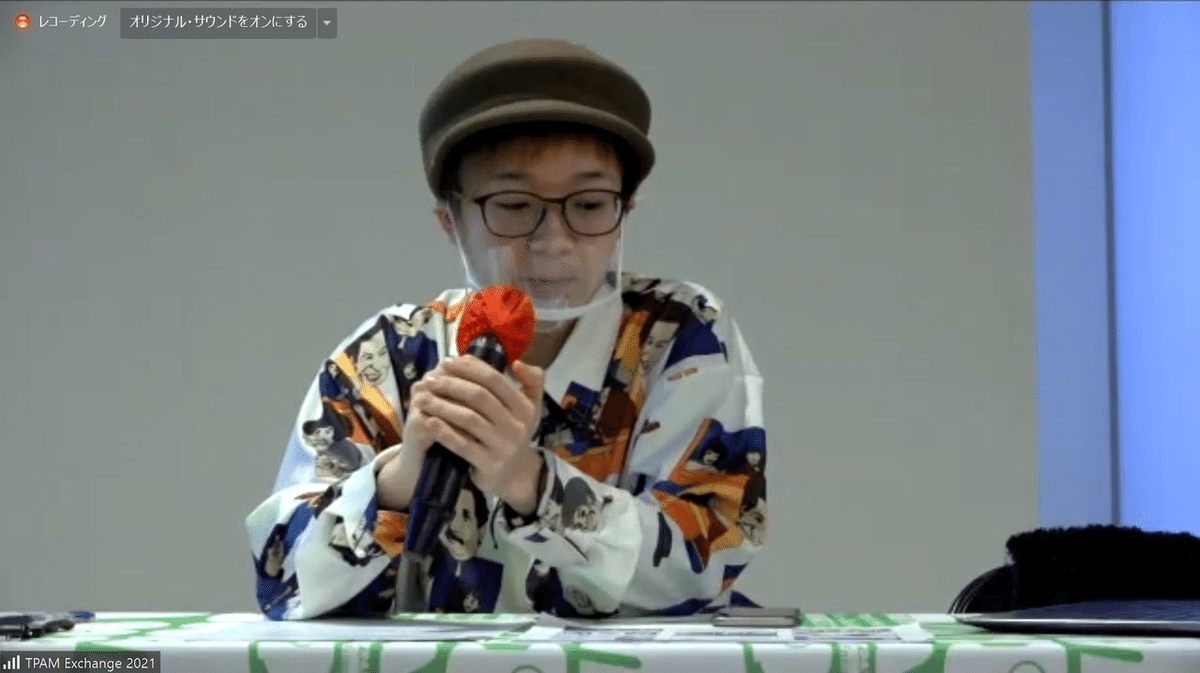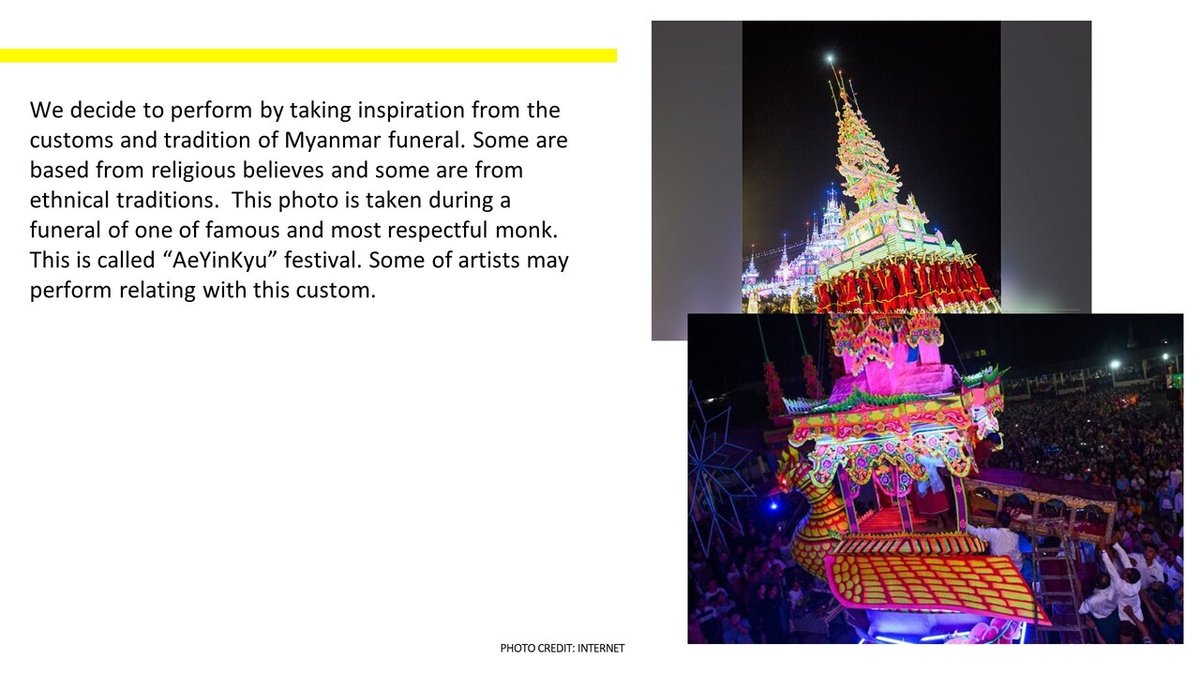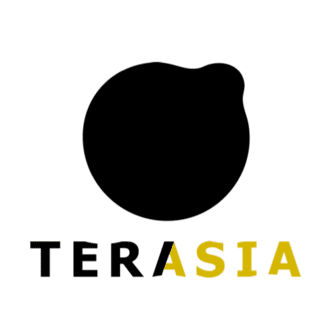
[Review] TERASIA Session at TPAM 2021: Group Meeting
Text by Rina Tanaka (Researcher/Critic)
On February 10, 2021 (Wed), an on-/offline session “Can a Transnational Team Co-create Theatre Without Crossing Borders? – TERASIA’s Experiment in Quarantine” in the Group Meeting at #TPAM2021 successfully finished. Thanks for joining us in difficult times.
Introduction: Transnational Discussions in the Age of Quarantine?
Under the long impact of the pandemic, it’s been a while since artists have in trouble traveling from one place to the other for collaborating in a theater production. But when we look back to the theater history, the manner of international collaboration has been changing, for example, with the following elements: the understanding of performing rights, creative interpretations in each local language and acting style, as well as cultural, religious, political, economic and technological backgrounds in each venue and each time.
And what happens today? In other words, how can we think of transnational theater in the age of quarantine? The project TERASIA has come across the borders in a very unique, and for you inspiring way. How did the Japan team develop the concept, “Theatre for Traveling in the Age of Isolation”? How did the Thai team join this project and create the local production TERA เถระ? What kind of communication emerged between Japanese and Thai teams? What’s the further outlook, or what is proceeding right now?
――The questions above were carefully unfolded in the TERASIA session at the TPAM 2021. The session was hybrid. Speakers, curators, and audiences joined the meeting online (on Zoom) and offline (at the venue in BankART Temporary, Yokohama). Online and offline participants were connected to each other via a screen. Due to the current situation that makes international travels difficult and often impossible, participants came to the session from many countries and regions: Indonesia, Japan (outside of Yokohama), Myanmar, Thailand, the United States, Vietnam, etc.
The session took 40 minutes for dealing with the project TERASIA that brought about (or is going to bring about) productions with the concept of “Theatre for Traveling in the Age of Isolation.”
The Concept of TERASIA (Maho Watanabe)
After the short introduction by Rina Tanaka (Japan, moderator), Maho Watanabe (Japan, dramaturge) explained how the concept of TERASIA emerged from TERA (2018 in the program of Festival/Tokyo18) and developed transnationally.
As the meeting title already indicated, the project began in the situation of quarantine and international travel restrictions due to the COVID-19. Therefore, instead of transferring the artists, TERASIA let the work travel across the borders. However, it does not simply mean the distribution of the ready-made, finished work, but rather it embraces “mutation and transformation through the journey” (Maho), especially by the on-site creation with the local team – or “creatives” - that consist of various artists in different fields.

TERA เถระ (2020) in Thailand ("Kop" Narumol Thammapruksa)
The second speaker was "Kop" Narumol Thammapruksa (Thailand, director), a director of the Thai production TERA เถระ (2020).
It was striking that Kop used the words “infectious” and “mutational” in a positive connotation to describe the transformation of TERA from Tokyo to Chen Mai. TERASIA has spread first among the collective team in Japan and reached Kop in Thailand. She formed a “cluster” with the local artists in a wide range of fields from Buddhist philosophy, Butoh, Lanna traditional musicology to theater performances. As a result, Tokyo’s TERA was de- and reconstructed with the own perspectives of the Thai team, but the core element of the original production remained in the Thai production.

TERASIA MYANMAR
Third, the Myanmar team leader shared materials of the next Myanmar’s production. Since they cannot attend the meeting due to the very difficult situation in Myanmar, Maho showed their presentation materials to the audience.
The materials pushed a discussion forward with unique and impressive ideas of the Myanmarese Team. Myanmar’s TERA is currently working with the customs and tradition of the Myanmarese funeral. Questioning life and death, which we come to feel more closely in the times of pandemic, upheavals, and uncertainty, TERA is mutating now. However, first and foremost, we wish that the team members stay safe there, with freedom in peace.

To Be a New Transnational Theater (in Progress)
In the Question and Answers at the end of the session, active discussions arose between speakers and audiences. Special thanks to Dindon W.S. (Indonesia) for sharing the plan for the Indonesian production (planned in 2023).

TERA is mutating. Its concept that emerged from TERA has been developed flexibly and site-specifically by the collectives in each performing venue. Furthermore, each variant is interconnected in the transnational network for keeping conversations further, transforming from limitations to possibilities, and bringing out a new transnational theater in progress.
[NOTE] The TERASIA is a long-term project (until 2023 for now) and therefore keen to have collaborators: both artists and partners. Thanks to the TPAM Meeting, we began networking with new collaborators. Look forward to our next “mutations”!
READ MORE about the next production:
TERA at Kosho-ji in Kyoto (March 26-28, 2021)
https://note.com/terasia_jp/n/n533f75438170 (in Japanese)

---
TPAM 2021: Group Meeting
"Can a Transnational Team Co-create Theatre Without Crossing Borders? - TERASIA's Experiment in Quarantine"
Date: February 10, 2021 (Wed), 11:00-11:40
Place: BankART Temporary 3F Gallery / Zoom
Language: English
Host: Rina Tanaka (Assistant Professor at Meiji University, Critic), Narumol (Kop) Thammapruksa (Director), Maho Watanabe (Dramaturge / Translator), an artist from Myanmar (name withheld for safety)
[Abstract]
Since May 2020, the project TERASIA: Theatre for Traveling in the Age of Isolation has taken on a challenge to co-create TERA (premiered at Festival/Tokyo 18) in multiple Asian countries. This site-specific, participatory performance at the Buddhist temple works around local beliefs in each community through theatre and music. By sharing the project processes among Japan, Thailand (2020), and Myanmar (2021), we discuss a new method of transnational collaboration in the quarantine era.
https://www.tpam.or.jp/program/2021/?program=group-meeting#group_37
---
Rina TANAKA
Assistant Professor at the School of Global Japanese Studies at Meiji University, a lecturer at Keio University and Kanagawa University. She was a visiting fellow at the Universität für Musik und darstellende Kunst Wien. Her research interests include the sociocultural history of musical theatre between German-speaking countries and East Asia since the 20th century. In 2019, she was awarded the Helsinki Prize from the International Federation for Theatre Research. Recently, she is also working as a translator and critic.
https://researchmap.jp/rhtanaka?lang=en
*If you are interested in our project TERASIA, please follow us to check new articles: note.com/terasia_jp
いいなと思ったら応援しよう!

